Why ghosting hurts so much
What It Is, Why It Hurts, and What You Can Do About It
You’re in a relationship. Suddenly, and maybe without any warning at all, your partner seems to have disappeared. No calls, no text messages, no connection made on social media, no responses to any of your messages. Odds are, your partner hasn’t unexpectedly left town because of a family emergency, and isn’t lying dead in a ditch somewhere but, rather, has simply ended the relationship without bothering to explain or even let you know. You’ve been ghosted.
Who Ghosts and Who Gets Ghosted?
Why would someone choose to simply disappear from another person’s life, rather than plan, at minimum, a conversation to end a relationship? You may never know for sure why you were ghosted. While more studies need to be done specifically on the ghosting phenomenon, past research has looked at different types of attachment personalities and choice of breakup strategies; it’s possible that people with an avoidant type personality (those who hesitate to form or completely avoid attachments to others, often as result of parental rejection), who are reluctant to get very close to anyone else due to trust and dependency issues and often use indirect methods of ending relationships, are more likely to use ghosting to initiate a break-up.
Other research found that people who are believers in destiny, who think that relationships are either meant to be or not, are more likely to find ghosting acceptable than people who believe relationships take patience and work. One study also suggests that people who end relationships by ghosting have often been ghosted themselves. In that case, the ghoster knows what it feels like to have a relationship end abruptly, with no explanation, no room for discussion. Yet they seemingly show no empathy toward the other, and may or may not experience any feelings of guilt over their ghosting behavior.
What it Means to Ghost and Be Ghosted
Ghosting is by no means limited to long-term romantic relationships. Informal dating relationships, friendships, even work relationships may end with a form of ghosting. For the person who does the ghosting, simply walking away from a relationship, or even a potential relationship, is a quick and easy way out. No drama, no hysterics, no questions asked, no need to provide answers or justify any of their behavior, no need to deal with someone else’s feelings. Certainly, while the ghoster may benefit from avoiding an uncomfortable situation and any potential drama, they’ve done nothing to improve their own conversation and relationships skills for the future.
Certainly, while the ghoster may benefit from avoiding an uncomfortable situation and any potential drama, they’ve done nothing to improve their own conversation and relationships skills for the future.
For the person who is ghosted, there is no closure and often deep feelings of uncertainty and insecurity. Initially, you wonder “what’s going on?” When you realize the other person has ended the relationship, you’re left to wonder why, what went wrong in the relationship, what’s wrong with you, what’s wrong with them, how you didn’t see this coming.
What to Do If You’re Ghosted
Ghosting hurts; it’s a cruel rejection. It is particularly painful because you are left with no rationale, no guidelines for how to proceed, and often a heap of emotions to sort through on your own. If you suffer from any abandonment or self-esteem issues, being ghosted may bring them to the forefront.
In this age of ever-advancing technology, your ghoster is likely to appear on your various forms of social media and, if that’s the case, this person who is now physically gone from your life, is still quite visible. How do you move on? Unfortunately, there’s no magic bullet or proven advice to quickly guide you into recovery from a ghosted heart, but there is common sense.
How do you move on? Unfortunately, there’s no magic bullet or proven advice to quickly guide you into recovery from a ghosted heart, but there is common sense.
“Avoid reminders of your ex,” advises Gwendolyn Seidman, Ph.D., Associate Professor of Psychology and Chair of the Psychology Department at Albright College in Pennsylvania. “They’re likely to cause painful emotions to resurface, and they won’t help you get emotional closure or insight into why they broke up with you.”
After you stop torturing yourself by going over old photos, saved old texts, new social media postings, and anything else you think might give you insight into the mind and current whereabouts of your ghoster (and let’s face it, you’re bound to be doing that even if you’re not normally an obsessive person), try to find a new distraction. Perhaps most importantly, know that this probably isn’t about you or anything you did wrong.
“You should realize that if your ex chose the strategy of ghosting to break up with you, it likely tells you something about them and their shortcomings, rather than indicating that the problem lies with you. ” Dr. Seidman adds.
” Dr. Seidman adds.
In other words, try to move on as quickly and completely as you can. Maintain your dignity and stay focused on your own health, happiness and future, leaving the ghoster to deal with the ultimate repercussions of their own immaturity and lack of courage in the context of a relationship.
- Freedman G, Powell DN, Le B, Williams KD. Ghosting and destiny: Implicit theories of relationships predict beliefs about ghosting. Journal of Social and Personal Relationships. January 12, 2018. https://journals.sagepub.com/doi/abs/10.1177/0265407517748791
- Collins TJ, Gillath O. Attachment, breakup strategies, and associated outcomes: The effects of security enhancement on the selection of breakup strategies. Journal of Research in Personality. January 28, 2012;46:210-222. https://www.academia.edu/1467823/Attachment_breakup_strategies_and_associated_outcomes_The_effects
- LeFebvre LE. Phantom Lovers: Ghosting as a Relationship Dissolution Strategy in the Technological Age.
 219-233 From: The Impact of Social Media in Modern Romantic Relationships (ed. NM Punyanunt-Carter, JS Wrench)
219-233 From: The Impact of Social Media in Modern Romantic Relationships (ed. NM Punyanunt-Carter, JS Wrench) - Koessler RB. When Your Boo Becomes a Ghost: The Association Between Breakup Strategy and Breakup Role in Experiences of Relationship Dissolution. Electronic Thesis and Dissertation Repository. https://ir.lib.uwo.ca/etd/5402/
Notes: This article was originally published January 8, 2019 and most recently updated February 1, 2020.
Why Ghosting Hurts So Much
Source: Antonio Guillem/Shutterstock
The opposite of love isn’t hate; it's indifference. Ghosting, for those of you who haven’t yet experienced it, is having someone that you believe cares about you, whether it be a friend or someone you are dating, disappear from contact without any explanation at all. No phone call or email, not even a text.
Ghosting isn’t new—people have long engaged in disappearing acts—but years ago this kind of behavior was considered limited to a certain type of scoundrel.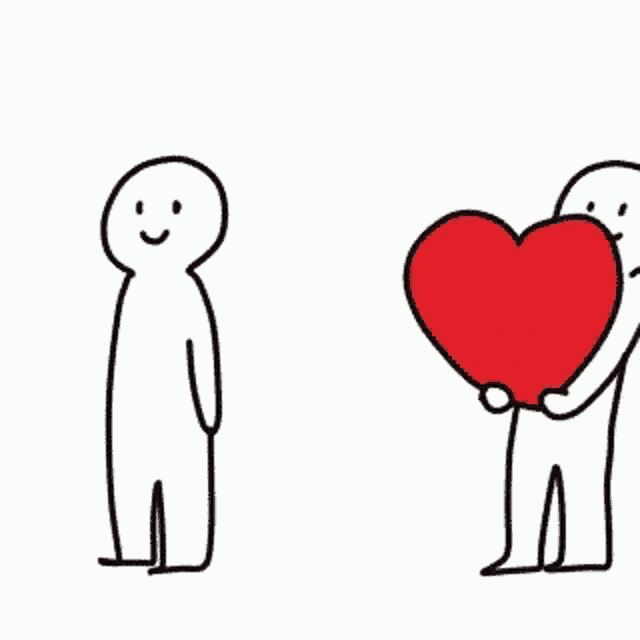 In today’s dating culture being ghosted is a phenomenon that approximately 50 percent of men and women have experienced—and an almost equal number have done the ghosting.1 Despite how common ghosting is, the emotional effects can be devastating, and particularly damaging to those who already have fragile self-esteem.
In today’s dating culture being ghosted is a phenomenon that approximately 50 percent of men and women have experienced—and an almost equal number have done the ghosting.1 Despite how common ghosting is, the emotional effects can be devastating, and particularly damaging to those who already have fragile self-esteem.
Why do people ghost?
People who ghost are primarily focused on avoiding their own emotional discomfort and they aren’t thinking about how it makes the other person feel. The lack of mutual social connections for people who met online also means there are fewer social consequences of dropping out of another’s life. The more it happens, either to themselves or their friends, the more people become desensitized to it, and the more likely they are to do it to someone else.
- “I didn't understand exactly how I actually felt at the time, so instead of trying to talk it out, I ghosted.” 2
- “I used to disappear when it was all I thought it was [a fling], or I got scared of finding what I wanted… Or some kind of fear factor from a past relationship kicks in.
 ” 2
” 2 - “Looking through the lens of a coward, passive withdrawal from dating seems like the easiest and nicest route… until it’s done to you.” 3
- “I kind of think that it's part of what makes the online dating scene so appealing. Since you don't have friends in common or weren't introduced through some other channel, it's not the end of the world if you just drop off the face of the earth.” 4
- “I, for one, consider myself to be an honest and straightforward person. And yet I’ve ghosted... And I’ve told myself, time and time again, that it’s all the fault of the toxic dating culture we’ve created. And at the end of the day, I think that’s what we’re all telling ourselves.” 5
How does it feel to be ghosted?
For many people, ghosting can result in feelings of being disrespected, used, and disposable. If you have known the person beyond more than a few dates then it can be even more traumatic. When someone we love and trust disengages from us it feels like a very deep betrayal.
- “I felt like an idiot. Like I had been played a fool. And more so I felt disrespected. Take the romantics away, to have a great connection with a new friend and then all of a sudden never hear from them again? That’s painful and really disappointing. No one deserves to be blown off.” 6
- “It still felt a bit like someone had punched me in the gut when it happened. The disregard is insulting. The lack of closure is maddening. You move on, but not before your self-esteem takes a hit. The only thing worse than being broken up with is realizing that someone didn’t even consider you worth breaking up with.” 7
- “Going from texting every day and seeing each other a couple of times a week to nothing without the slightest hint of why was a kick in the gut.” 8
- “Ghosting is one of the cruelest forms of torture dating can serve up.” 9
Why does it feel so bad?
Social rejection activates the same pain pathways in the brain as physical pain.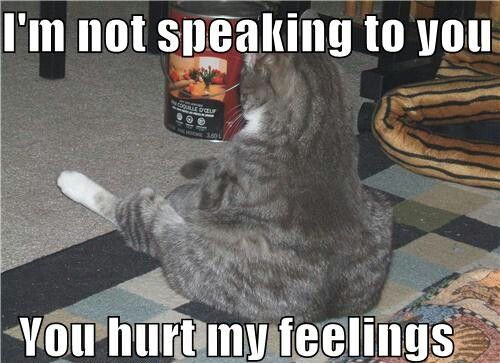 10 In fact, you can reduce the emotional pain of rejection with a pain medication like Tylenol.11 But in addition to this biological link between rejection and pain, there are some specific factors about ghosting that contribute to psychological distress.
10 In fact, you can reduce the emotional pain of rejection with a pain medication like Tylenol.11 But in addition to this biological link between rejection and pain, there are some specific factors about ghosting that contribute to psychological distress.
Ghosting gives you no cue for how to react. It creates the ultimate scenario of ambiguity. Should you be worried? What if they are hurt and lying in a hospital bed somewhere? Should you be upset? Maybe they are just a little busy and will be calling you at any moment. You don’t know how to react because you don’t really know what has happened. Staying connected to others is so important to our survival that our brain has evolved to have a social monitoring system that scans the environment for cues so that we know how to respond in social situations.12 Social cues allow us to regulate our own behavior accordingly, but ghosting deprives you of these usual cues and can create a sense of emotional dysregulation where you feel out of control.
One of the most insidious aspects of ghosting is that it doesn’t just cause you to question the validity of the relationship you had, it causes you to question yourself. Why didn’t I see this coming? How could I have been such a poor judge of character? What did I do to cause this? How do I protect myself from this ever happening again? This self-questioning is the result of basic psychological systems that are in place to monitor one’s social standing and relay that information back to the person via feelings of self-worth and self-esteem. When a rejection occurs your self-esteem can drop, which social psychologists propose is meant to be a signal that your social belonging is low.
13 If you have been through multiple ghostings or if your self-esteem is already low, you are likely to experience the rejection as even more painful, and it may take you longer to get over it as people with lower-self-esteem have less natural opioid (painkiller) released into the brain after a rejection when compared with those whose self-esteem is higher. 14
14
Ghosting is the ultimate use of the silent treatment, a tactic that has often been viewed by mental health professionals as a form of emotional cruelty.15 It essentially renders you powerless and leaves you with no opportunity to ask questions or be provided with information that would help you emotionally process the experience. It silences you and prevents you from expressing your emotions and being heard, which is important for maintaining your self-esteem.
Regardless of the ghoster’s intent, ghosting is a passive-aggressive interpersonal tactic that can leave psychological bruises and scars.
How do you move forward?
The important thing to remember is that when someone ghosts you, it says nothing about you or your worthiness for love and everything about the person doing the ghosting. It shows he or she doesn’t have the courage to deal with the discomfort of their emotions or yours, and they either don't understand the impact of their behavior or worse don’t care.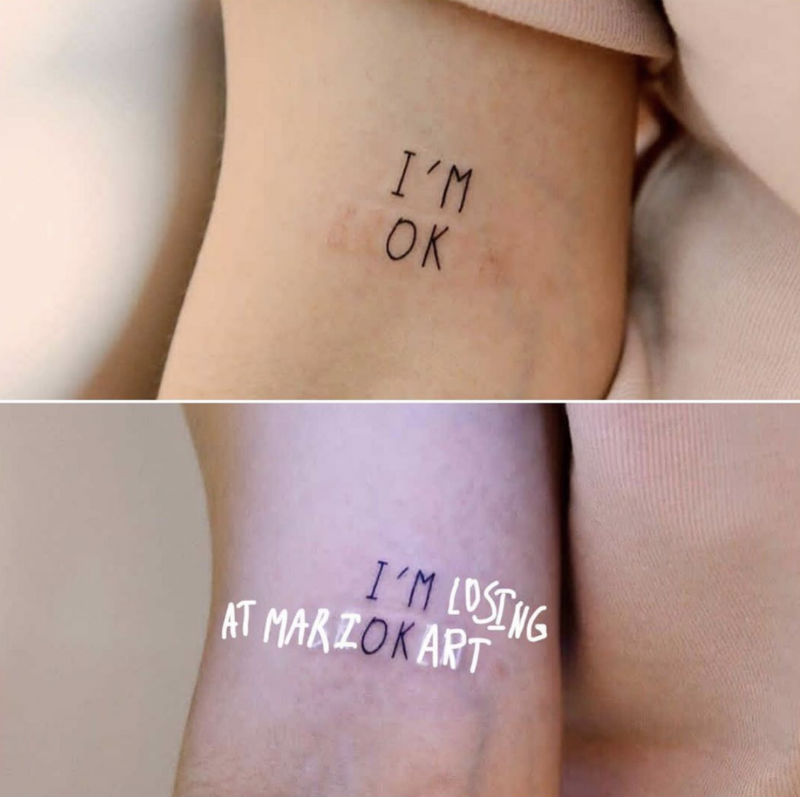 In any case, they have sent you an extremely loud message that says: "I don’t have what it takes to have a mature healthy relationship with you." Be the better person, retain your dignity, and let him or her go peacefully.
In any case, they have sent you an extremely loud message that says: "I don’t have what it takes to have a mature healthy relationship with you." Be the better person, retain your dignity, and let him or her go peacefully.
Don’t allow someone else’s bad behavior to rob you of a better future by losing your vulnerability and shutting yourself off from another relationship. Keep your energy focused on doing what makes you happy. Know that if you are someone who treats people with respect and integrity then the ghoster simply wasn’t on your wavelength and someone better is coming your way, as long as you keep your heart open and your focus forward.
For more, see "When Is It OK to Ghost Someone? "
8 scientific explanations why you might have met a ghost
You can listen to a short version of the article. If it's more convenient for you, turn on the podcast.
All scientists in the world are sure that there are no ghosts in nature. Nevertheless, people continue to see people from the afterlife everywhere, or at least claim it with absolute certainty. Here are some explanations for why such "meetings" happen.
Nevertheless, people continue to see people from the afterlife everywhere, or at least claim it with absolute certainty. Here are some explanations for why such "meetings" happen.
1. Infrasound exposure
Image: Erin Minuskin / UnsplashHuman ears have a range of sensitivity: we cannot hear sounds above ~20,000 Hz (ultrasound) and below ~20 Hz (infrasound). But these fluctuations still do not remain completely invisible to our body.
Experts from the National Physical Laboratory in England and the University of Hertfordshire found that infrasound causes strange feelings in people: intense sadness, anxiety and frustration, chills and the feeling that someone is in the room and is watching them.
Tested volunteers complained of disgust, fear and anxiety.
It is not surprising that infrasound in the range of 18.9 Hz - just below the threshold of human hearing - is called by some researchers the "frequency of fear." Such vibrations can affect not only hearing, but also vision, because the human eyeballs resonate at about the same frequency. So spots before the eyes and other optical illusions are added to the feeling of anxiety.
So spots before the eyes and other optical illusions are added to the feeling of anxiety.
Infrasound can be generated in the home by various appliances such as exhaust fans, musical instruments or passing trains. So ghosts will not necessarily visit only residents of remote quiet villages - rather, they will prefer owners of houses near busy freeways.
2. Ideomotor act
A still from the movie "Ouija: The Devil's Board"Most likely, you have heard of Whitge's board. This is a séance tool - a piece of wood with letters and the words "Yes" and "No" painted on it.
The principle of use is as follows: a group of people, putting their hands on the planchette, drive it along the board. It is believed that if you call on some restless spirit and ask him a question, he will answer by shifting the pointer to the desired letters.
Legend has it that the name of the toy came about when, in 1891, the inventor Elijah Bond asked the blackboard what to call it.
The answer was Whitja, Ouija.
This phenomenon has been studied by scientists for more than 100 years, and the reason for the talkativeness of ghosts that inhabit a piece of wood has long been determined. Numerous studies have repeatedly shown that the pointer was involuntarily moved by the subjects themselves.
Participants of a seance, touching the planchette, unconsciously perform the so-called ideomotor act, when mental tension causes real muscle contraction. This is the "Carpenter effect", which is named after the physician and physiologist who discovered it in 1852.
That is, if the spirit callers believe that the ghost must answer the question "Yes", "No", or even "I am Napoleon!", the nerve impulses in their bodies will lead to unconscious movements that push the planchette to the desired letters.
Naturally, in the experiments, the alleged ghosts were able to speak only on topics that were familiar to the subjects.
3. Phosphine chemiluminescence
Image: Wikimedia Commons Imagine: you got out into nature, you walk through a rural wetland, you don't touch anyone.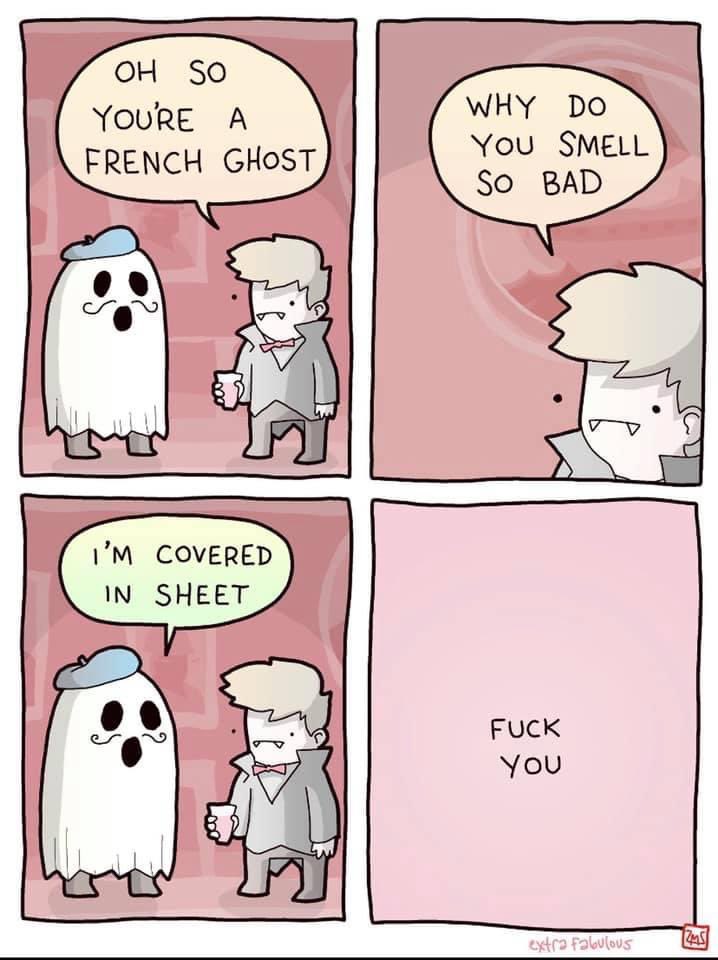 We cast a glance into the dark forest - and there is a gloomy otherworldly glow! What is this? Is it possible that the ghostly physiognomy of a mushroom picker who disappeared there a few years ago leaned out of the thickets?!
We cast a glance into the dark forest - and there is a gloomy otherworldly glow! What is this? Is it possible that the ghostly physiognomy of a mushroom picker who disappeared there a few years ago leaned out of the thickets?!
No, you've only encountered a so-called will-o'-the-wisp. This phenomenon is often found in swamps. When organic matter—particularly leaf litter and aquatic plants—breaks down, it releases a chemical compound called phosphine.
Combining with oxygen and nitrogen in the air, it oxidizes and creates a ghostly, mystical glow.
So the swamp ghosts and lost souls that tourists and outdoor enthusiasts talk about are not newcomers from the other world, but the result of phosphine chemiluminescence.
4. Mycotoxin poisoning
Image: Patrick Hendry / Unsplash As you know, especially often ghosts are found in all sorts of gloomy abandoned mansions. The phrase "haunted house" has long been established in many languages. And such a love of the undead for uninhabited premises is quite understandable from a scientific point of view.
And such a love of the undead for uninhabited premises is quite understandable from a scientific point of view.
Experts at the Independent Neurodiagnostic Clinic in Atlanta have found that spores of various types of fungi and molds that live in the humid environment of abandoned buildings, if inhaled, can lead to neurological and neuropsychiatric disorders.
Mycotoxins cause pain, impaired movement, balance and coordination, feelings of irrational fear, delirium and even dementia.
Add to this the banal aspergillosis - infection of the lungs with fungal spores. The disease is accompanied by symptoms such as allergies, asthma, cough and fever.
Conclusions? If your home has begun to be haunted, it's time to start reading our guide to getting rid of mold.
5. Inhalation of carbon monoxide
Image: Ville Palmu / Unsplash Various mental problems, such as hallucinations and voices in the head, are caused not only by fungal spores, but also by other toxic substances, such as carbon monoxide released during combustion.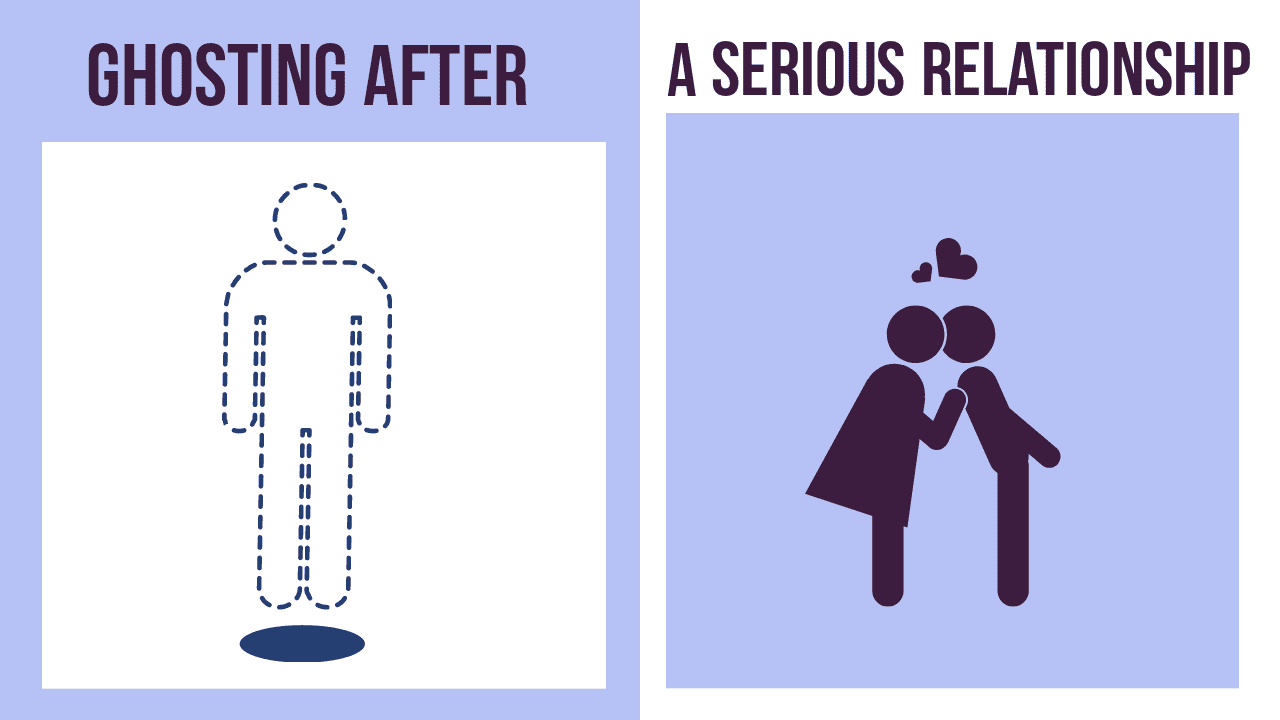
You may have heard that spiritualism was very popular in England and America in the 19th century. Well, that is, belief in the afterlife and the possibility of talking with spirits through mediums.
Many famous people were staunch supporters of spiritualism, for example, Sir Arthur Conan Doyle, author of stories about Sherlock Holmes.
A number of researchers link such a passion for ghosts with the total gasification of cities in that period - the industrial revolution, after all.
Flashlights produced a lot of carbon monoxide when burned. Combined with the then fashionable heavy curtains and the common practice of locking windows tighter, this led to constant carbon monoxide poisoning.
Ever since the 1920s, paranormal researchers have noted a connection between the gasification of the house with the presence of "ghosts" there. Carbon monoxide poisoning causes visual and auditory hallucinations, nausea, weakness, and headaches. And superstitious people easily mistake this for the activity of demons and other otherworldly entities.
And superstitious people easily mistake this for the activity of demons and other otherworldly entities.
The American Journal of Ophthalmology in 1921, for example, described a case of a woman constantly hearing footsteps and strange voices, and also felt as if an invisible person was strangling her in bed at night. But as soon as her oven was repaired, which turned out to be faulty, the ghosts took over and self-destructed.
6. Pareidolia
Image: Wikimedia CommonsPareidolia is an optical illusion that makes you see the outlines of familiar objects where there are none. Look at the cloud and understand that it looks like a unicorn. We looked at the potato - wow, that's your uncle's face. Faced at night with a blanket lying on a chair - the ghost of a creepy old woman wrapped in a shroud!
It is believed that pareidolia developed in humans as a result of evolution. The brain warns us of danger even when it is not exactly sure of its presence. It seemed - just in case, scared.
As the saying goes, it's better to see a tiger where there isn't one.
Pareidolia is not only visual, but also auditory, when we distinguish familiar sounds in random noise. Therefore, people sometimes hear voices in radio interference.
This is a useful quality of our mind that allows us to quickly find sources of danger in a hodgepodge of visual images and noise. But because of him, we often see what is not really there. For example, ghosts.
7. Sleep paralysis
Image: Wikimedia CommonsStories about ghosts, brownies, vampires, succubi, maras and other evil spirits that come to a person in a dream and suffocate him are among many peoples of the world.
You lie down, don't touch anyone, and then you feel how something terrible materializes in your bedroom, pulls off your blanket and starts grabbing your throat. And you can’t even move, except that you drive your eyes back and forth. Unpleasant sensations.
Scientists believe that the rampage of night ghosts is associated with a phenomenon called sleep paralysis. The fact is that our body in a dream immobilizes the muscles so that the limbs do not twitch much.
The fact is that our body in a dream immobilizes the muscles so that the limbs do not twitch much.
This is a natural mechanism. Useful to keep from falling out of bed at night, you know.
Sometimes the brain wakes up at night, and the muscles are still relaxed and do not respond to commands from the nervous system. Approximately 7.6% of people in the world have experienced this condition at least once in their lives. It quickly passes, although subjectively it seems to people that the nightmare lasts a long time.
Sleep paralysis is perfectly safe, but can be frightening, especially when accompanied by frightening dreams. Because of him, images of terrible spirits are born that attack people at night.
8. Stranger in the mirror effect
Image: Tuva Mathilde Løland / Unsplash Many people believe that mirrors are the door to the other world. In a house where someone has died, they are hung up so that the ghost of the deceased does not reflect in them.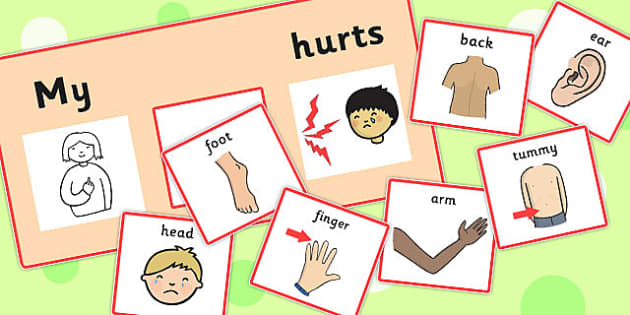 In the old days, girls were guessing in front of mirrors, trying to see the outlines of their future lover there.
In the old days, girls were guessing in front of mirrors, trying to see the outlines of their future lover there.
Abroad, these objects were also considered a means of communication with spirits. The ghost of Bloody Mary, for example, had to be called in a dark room with a mirror and a candle - compare with Slavic Christmas divination.
However, all this is also quite understandable from a scientific point of view. Psychiatrists know that sometimes people with mental disorders have problems with the so-called mirror identity.
Patients with right hemisphere dysfunction resulting from traumatic brain injury, stroke or other neurological disease sometimes lose the ability to recognize themselves in the reflection. And they see their relatives (sometimes deceased) or strangers.
But a similar effect is regularly observed in absolutely healthy people.
Researchers at the University of Urbino in Italy conducted a series of tests in which volunteers looked in a mirror in dim light for more than 10 minutes.
The subjects began to see in the reflection of strangers, their own deformed faces or living or dead parents. The participants of the experiment also distinguished archetypal images: an old woman, a child or a portrait of an ancestor, as well as animal faces. For example, cats, pigs or a lion. They even imagined various fantastic creatures and monsters. All these images inspired fear and anxiety.
This phenomenon is called the “stranger in the mirror effect”. When a person focuses too long on his own physiognomy in the mirror, the brain gives a slight glitch and for a second begins to take the reflection for an outsider.
Quite a natural phenomenon. But at night, in the dark, suddenly colliding with a mirror in the corridor, you can get a little scared.
Read also 🧐
- 9myths about the human brain that you don't believe in
- How caveman fears make us do stupid things
- 8 of the strangest diseases and syndromes known to science
"Ghost hunters": remake that causes pain and convulsions
Fresh number
RG-Nedel
Rodina
Tematic
Union
Fresh number
Cinema 9000 9000. 2016
2016
Share
Aleksey Litovchenko
Madame, in her 40s, co-authored a 460-page book about ghosts with a friend, but she really doesn’t want anyone to read it, because at her new job, at a prestigious research institute, mysticism is not approved . However, everything that could go wrong has gone wrong - and now four women and one handsome secretary with nightstand intelligence are opening a perfume trapping agency. Meanwhile, a chubby outsider is preparing an insidious plan - nothing less than world domination.
Is Ghostbusters as bad as we expected? Perhaps yes. The idea of making a bachelorette party out of family fiction loved by several generations from the very beginning caused at least bewilderment. It became stronger and stronger during the entire pre-premiere advertising campaign, which was accompanied by angry exclamations on the Web: "Why are you doing this?!"
There is a moment in the film when, after the first meeting with the Otherworld and recording this meeting on camera, the heroines upload the video to YouTube and read the comments to it.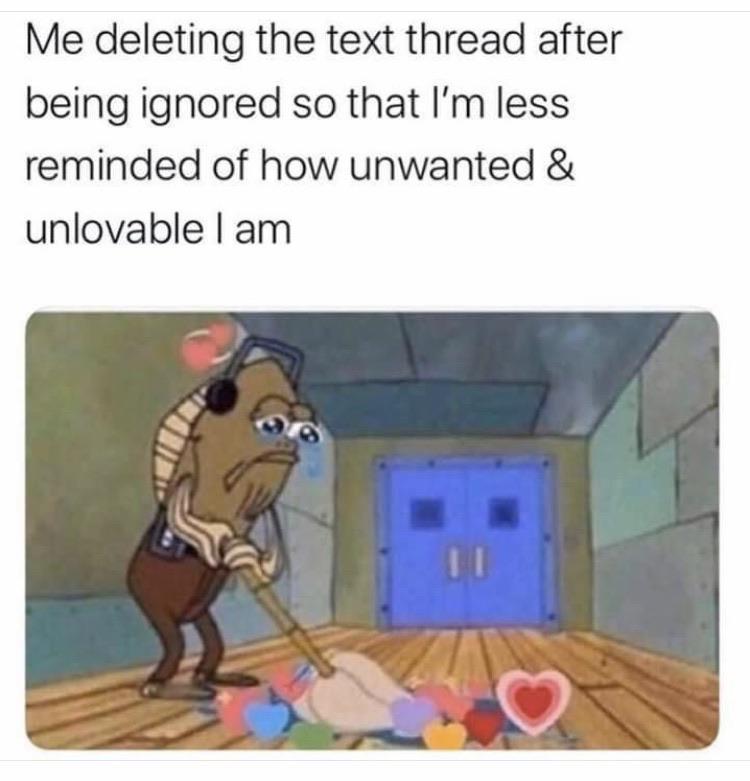 One - quoted aloud - reads "Women can't hunt ghosts" (only in a less polite way), which is an obvious reference to the real comments that users left on the first trailer, the one that broke the record for dislikes. So Paul Fig, as it were, declares: "Here, look, they can, but you said." Can not argue. But there is one caveat: the predecessors of the hunters humanely detained and imprisoned negligent ghosts in a special prison, while their epigones managed to catch exactly one representative of evil spirits, and even after a short time, due to the stupidity of the "catchers", he was free.
One - quoted aloud - reads "Women can't hunt ghosts" (only in a less polite way), which is an obvious reference to the real comments that users left on the first trailer, the one that broke the record for dislikes. So Paul Fig, as it were, declares: "Here, look, they can, but you said." Can not argue. But there is one caveat: the predecessors of the hunters humanely detained and imprisoned negligent ghosts in a special prison, while their epigones managed to catch exactly one representative of evil spirits, and even after a short time, due to the stupidity of the "catchers", he was free.
All other ghosts are subjected to cruel, merciless extermination. How can one kill someone who is already dead is, of course, a big question, but this paradox can, if not be forgiven, then condescendingly turn a blind eye to it, since the process of murder itself is very colorful and effective. True, one has to wait until the very end for a cheerful rubilov aunts with crowds of blue-green smoky creatures generously sprinkling them with sprays of thick viscous ectoplasm.
Obviously, the main driving force of the "Hunters" rebirth project is, in addition to the banal thirst for profit, the desire to break as many gender stereotypes as possible - a trend of fashion, what can you do. However, along with a visual demonstration of how New York women can stop phantoms at a gallop and enter haunted houses, other stereotypes crawl out of all the cracks, exploited both in the tail and in the mane. Cute jock means stupid. Politician means cowardly and petty. Not a single positive male character in the entire film.
But women's - a whole quartet. But even those are primitive, monosyllabic and also, oddly enough, stereotyped. One is a noisy African-American woman who knows the city well, the second is a "techie tomboy" with marginal manners, sporadically spouting streams of pseudoscientific terms, the third is quiet, "drying" for the handsome secretary, the fourth is fat and loves dumplings. Most of their dialogues, written as if by members of the KVN team of a provincial vocational school, end with interrupting each other and merging several voices into one headache-inducing sound mess.














